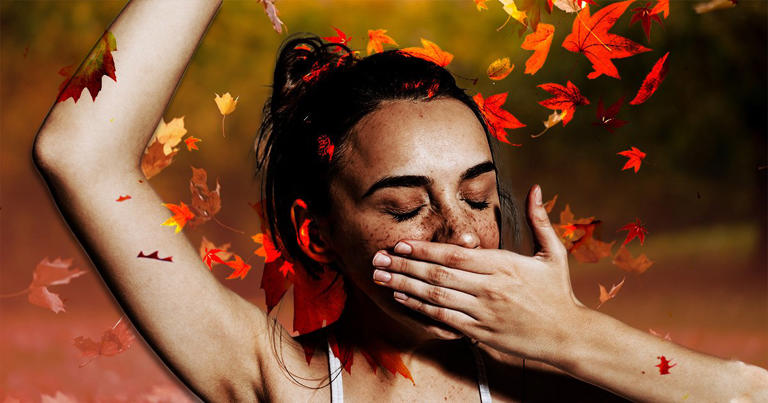“It’s 6 a.m., and your alarm blares in the darkness outside.
This scenario is a common reality for many of us as autumn arrives and the days grow shorter.
Despite still getting the same amount of sleep as we did during the summer, waking up becomes significantly harder on these gloomy autumn mornings. The struggle to fend off tiredness and stay alert throughout the day becomes palpable.
But why does this happen?
According to sleep expert Lisa Artis, who serves as the deputy CEO of The Sleep Charity, our biology is working against us.
‘In autumn, the evenings grow darker, triggering the production of melatonin, the sleep hormone, earlier in the day, making us feel sleepy,’ she explains.
‘Mornings are also darker, which keeps our melatonin levels high and contributes to daytime sleepiness. Natural light, on the other hand, boosts wakefulness and signals our internal body clock to wake up and stop producing melatonin.’
For those grappling with morning grogginess, Lisa recommends strategic approaches such as placing your alarm far from the bed, using a sunrise alarm that gradually brightens to wake you up, turning on the lights shortly after waking, and even taking a cold shower.
All of these tactics can enhance alertness and alleviate the feeling of being out of sync with the time of day.
‘Open your curtains so that the moment it starts getting lighter, you’ll experience the benefits. If you’re really struggling, consider light box therapy,’ she suggests.”

How to beat winter tiredness
Lisa recommends the following sleep-enhancing strategies:
- Maintain consistent sleep patterns and prioritize good sleep hygiene. This involves sticking to regular sleep and wake hours and ensuring you sleep on a comfortable, supportive mattress.
- Evaluate your pre-bedtime routine for improvements. Assess your activities before bedtime and identify changes that could enhance your sleep quality.
- Avoid alcohol consumption before sleep. Although alcohol might induce drowsiness and quicken the onset of sleep, it disrupts the depth of your sleep, preventing it from being truly restorative for your mind and body.
- Make small adjustments to your diet and daily routine. Even minor changes can have a significant positive impact on the quality of your sleep.
“During the winter when there’s less daylight, it can mess with our body’s natural clock and lower our energy because we get less sunlight. To feel more energetic, eat a balanced diet with lots of fruits, veggies, whole grains, proteins, and healthy fats. Also, make sure to get enough vitamin D and drink plenty of water, which helps fight tiredness.
Certain foods can help when you’re feeling low on energy or recovering from drinking alcohol. Eating blueberries before and after drinking can reduce inflammation caused by alcohol. Sweet potatoes are good because they have nutrients that alcohol can deplete. Avocado and banana protect your liver because they have a lot of potassium. And if you’re dealing with a hangover, eating roasted vegetables with whole wheat pasta can help. The veggies have lots of water to hydrate you, and pasta keeps you feeling full and helps curb sugar cravings.
As winter approaches, it’s important to have a routine that includes healthy eating to stay energized.”